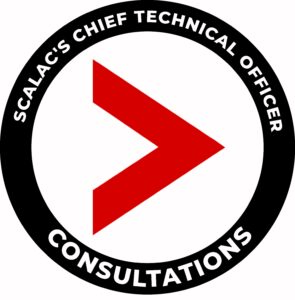
Why do companies fear team extension?

Team extension – easy way to strengthen an in-house team
Team extension is one of the fastest ways to strengthen an in-house team with experienced developers. This solution benefits companies in the growth phase, scaling quickly or opening a new project that cannot be built by an in-house engineering team. In that case, the help of an expert company that can propose a solution supporting the in-house team will come in handy. Without a tedious recruitment process, it can provide experienced experts to power up any existing project or start constructing something new.
Why do companies fear team extension? 10 main reasons:
Yet, despite team extension opportunities, many companies have reservations about taking advantage of this opportunity. Regardless of whether they have already used team extension services and were unsatisfied or did not undertake such cooperation, the reasons for hesitating are usually similar. This article presents ten reasons for these fears and tries to find the solutions that will quench them. It’s built on our 10 years of expertise in team extension and outsourcing solutions.
1. Security
One of the primary concerns is the security and privacy of sensitive data. Companies may worry that working with an external team member may expose them to data breaches or unauthorized access to their confidential information.
Luckily, a simple solution to this problem is a well-constructed and detailed Non-Disclosure Agreement. Thanks to one of these, both companies can feel safe about their data and sleep peacefully.
A team-extension NDA is the first issue that must be addressed when starting any cooperation. Ensuring that both companies feel secure is crucial to a successful deal.
2. Communication Barriers
Language barriers and differences in time zones can be a worry for companies considering team extension. They may lead to communication challenges within an outsourced team. Miscommunication can result in project delays, misunderstandings, and errors. Overall, it may even result in a complete failure of the project.
Two crucial factors should be considered when it comes to establishing cooperation success. The first is to ensure that the company providing the specialists verifies that they can communicate freely with the in-house team and any other people responsible for the project. Secondly, you need to establish that everyone’s working hours and time zones will not be obstacles to the project’s construction. The ideal solution would be for the outsourced team to be in the same or similar time zone as the rest of the team.
3. Paperwork
Many companies may perceive team extension paperwork as complicated, long, and stressful – but it doesn’t have to be this way. From the point of view of successful cooperation, the most important thing is that the documents should be short and straightforward. You need to figure out what the most important things to be included are.
Proper documentation should describe:
- The companies’ cooperation terms in a clear and detailed agreement.
- The Scope Of Work – the conditions (such as hours, rates, and responsibilities) under which the programmer will work.
IMPORTANT: Ensure that the documents always contain a notice period allowing you to resign from the consultant’s services if such a need arises.
4. Hidden Costs
Some companies worry about hidden or unexpected costs associated with outsourcing, such as additional fees, contract disputes, or the need for more extensive oversight. This is both stressful and can interfere with collaboration on the project.
However, when working with a reliable company, such situations should not occur. Still, to build mutual trust, both parties should prepare an agreement that codifies cooperation and financial issues. Thanks to this, you can safely avoid misunderstandings and additional costs.
5. Loss of developer
Companies may fear that the software house will remove the consultant from their project and leave them without a team member. Suppose a situation arises in which, due to force majeure, the company has to remove the developer from your project.
In that case, a reliable software house will ensure that another candidate replaces the team member with similar skills and experience. It is good to discuss this during contract negotiation to ensure that this issue will not block the development of the whole project.
6. Cultural Mismatch
Companies sometimes fear that adding in ’external people’ may disturb the development of the company culture. Integrating external team members with existing internal processes and systems can be technically and administratively challenging (especially with offshore teams).
Here, the responsibility rests with experienced project managers and a skilled talent team. Thanks to earlier arrangements, integrating new engineers with the in-house team should be seamless and ensure excellent cooperation.
7. Intellectual property and losing control over the project
Startups are focused on having employees in-house, as their ’secret source’ (IP) is usually people’s knowledge. There can also be a fear of losing control over project management and decision-making processes when external members are involved.
In this case, a well-constructed contract plays an important role, and proper management of both teams means that their diverse experience will ensure the project’s success.
8. Dependency
Relying on external teams can create dependency, which can be risky if the external team cannot deliver or discontinue their services unexpectedly.
Choose a reliable software house, and this issue will not arise! But if it does happen, well-prepared project documentation will play the most crucial role. Thanks to that, if something unexpected happens, the next team will be able to resume work on the project almost from the first day.
9. Knowledge Transfer Issues
There is a risk of knowledge loss when external team members leave the project, as they may carry essential project insights and experiences with them.
This issue can be remedied by expert training from an external team and knowledge-sharing sessions during which knowledge and skills are transferred. Thanks to this, teams will cooperate better, and the knowledge acquired by the in-house team members during their cooperation on the project will remain inside the company.
10. Skills of external team
The last problem is concerns about the skills of the external team members and their experience. Will they be up to mark, and will the developers have the knowledge necessary to work on the project?
Here again, choosing a good partner for your cooperation comes into play. You need a reliable software house that can provide team extension services with experienced talent teams who know how to engage real experts. Thanks to competent verification of both their technical and soft skills, you can be sure that only the most ideal candidates will be selected for the project.
How do you successfully establish fruitful cooperation with a team extension company?
Firstly, you should choose only the most experienced, effective, and reliable software house. It is worth looking at its achievements, articles, blogs, published e-books, as well as reviews from previous clients. A strong market position will also be proof of the reliability of a potential partner.
In addition, when choosing, you should pay close attention to the potential service provider’s approach to the contract, NDA, and other documents enabling cooperation. A red flag should be raised if any serious problems arise at this stage.
And finally, a conversation with both business representatives and the candidates themselves to ensure the cooperation will be fruitful. After all, understanding the project is one of the keys to its success.
Scalac – experts in Java, Scala, and Rust team extension.
This article was created thanks to Scalac’s ten years of experience providing team extension and outsourcing services. Over the years, we have worked with dozens of clients, helping them build their projects successfully. We know technology companies’ concerns about using external teams, and we know how to deal with them. This is one of the reasons why Scalac is known not only as an expert company but also as a reliable partner. Our years of experience mean that mutual trust is the most critical factor in such cooperation.











